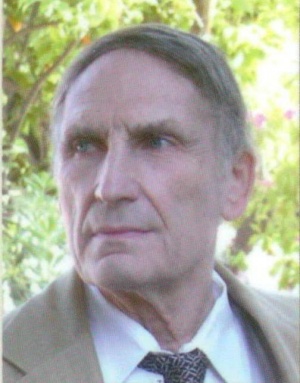Irwin Wunderman
Irwin Wunderman | |
|---|---|
 | |
| Born | April 24, 1931 |
| Died | July 23, 2005 |
| Residence | Mountain View, CA, United States |
| Nationality | USA |
| Scientific career | |
| Fields | Electrical Engineer |
Irwin Wunderman's technical pursuits focused on developing electronic instruments. He holds a Ph.D. in Electrical Engineering from Stanford and chaired the Northern California IEEE Professional Group on Instrumentation. His early professional career included responsibility for all solid state research and development at Lockheed Aircraft Corporation, and then at Hewlett Packard Company. He introduced transistorized circuitry at hp Corporate Labs and managed the transistorized digital instrument and optical instrument programs. As co-founder of Hewlett Packard Associates he served as Principal Investigator on Air Force contracts to find uses for junction luminescence. Through the early 60's his work included the development of the first optocouplers and fiber optic communication links. Upon leaving hp in 1967 he founded Cintra Physics International as its President and CEO. Cintra developed a line of optical autoranging digital instruments and a compatible computer/calculator. He received the 1970 Industrial Research 100 Award for creating the first scientific computer/calculator to employ algebraic notation and having a data bus permitting real-time integration between digital instruments, keyboards. computers and network systems. Cintra was sold to Tektronics in 1971 who licensed the consumer-product version of the calculator to Texas Instruments. The Cintra computer-data-bus became prototype for the IEEE-488 bus Standard and the calculator the basis of the existing Texas Instrument scientific calculators. Dr. Wunderman received the 1968 commendation leadership letter from President Elect Richard Nixon. He holds 15 patents and authored 25 papers, some attaining international awards. This work culminates four decades of independent analYSis to better understand photons, and find a classical foundation for quantum and relativistic phenomena.
Books
- 2003 - "Planck's Constant and Pi: A Unified Wave Theory for Particles and Bioforms" (Read in full)
- 2000 - "What Is A Photon?: A Unified-Wave Theory Explained" (Read in full)
- 1977 - "Classically Derived Quanta, Uncertainty & Relativity" (Read in full)
- 1964 - "Characteristics of Photon-Coupled Systems (Technical report - Electronics Laboratories, Stanford University)" (Read in full)